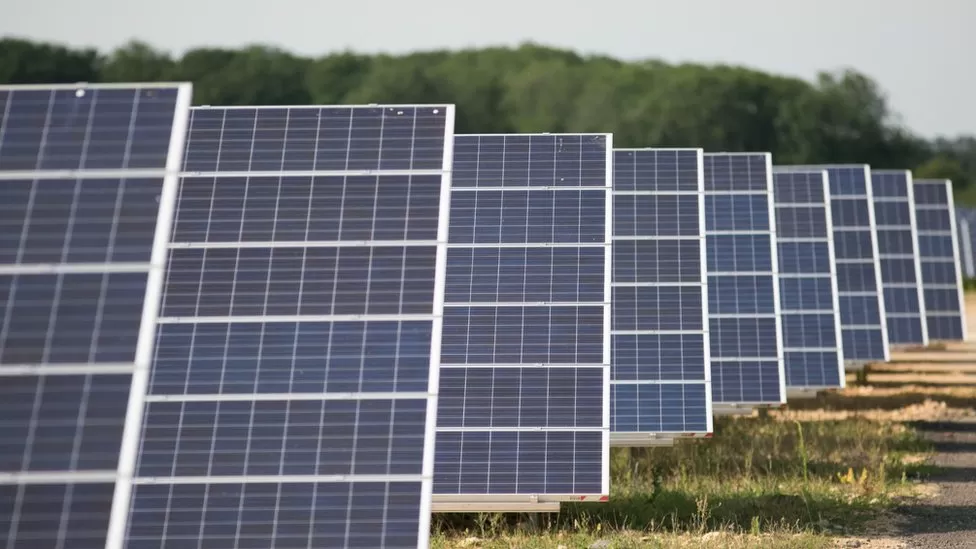The project will include rooftop and ground-mounted solar power systems, as well as EV charging stations
Bahrain has signed agreements to set up a solar park project with a capacity of 72 megawatts as the kingdom looks to achieve net-zero emissions by 2060.
The project is part of Bahrain’s renewable energy plan, which aims to increase the share of clean energy in the country’s electricity mix to 5 per cent by 2025, and 20 per cent by 2035, the Bahrain News Agency reported on Tuesday.
The solar PV project, located in Bahrain’s southern region of Sakhir, will include rooftop and ground-mounted solar power systems and electric vehicle charging stations at the Bahrain International Circuit, the University of Bahrain, Exhibition World Bahrain, and the Al Dana Amphitheatre.
The solar park will help achieve sustainable economic development for Bahrain and its citizens and is within the kingdom’s international commitments, Yasser Humaidain, Minister of Electricity and Water Affairs, said.
Expanding the use of solar energy will help preserve the environment and ensure the sustainability of resources, he added.
Bahrain, the Arabian Gulf’s smallest oil producer, is making “progress” in several areas as it aims to achieve the net-zero target, Mr Humaidan said during an event in May.
“We have engaged with several of the large industrial emitters, and we have implemented a system of continuous emissions monitoring where we can monitor their emissions remotely, continuously and in real-time,” he said.
GCC countries are seeking to boost renewable energy production to reduce emissions and achieve net zero targets in the coming decades.
The UAE, the Arab world’s second-largest economy, is investing heavily in clean energy projects and has announced several initiatives as it seeks to reach net-zero emissions by 2050.
The country is developing clean energy projects such as the Barakah nuclear plant, a two-gigawatt solar plant in Abu Dhabi’s Al Dhafra region and the five-gigawatt Mohammed bin Rashid Al Maktoum Solar Park in Dubai.
Saudi Arabia, the Arab world’s largest economy, aims to achieve net zero by 2060 and is developing several new renewable energy projects.
Investment in clean energy is set to reach $1.7 trillion this year, outpacing spending on fossil fuels, as countries look to address potential energy shortages, according to the International Energy Agency.
Global energy investments in 2023 are projected to reach $2.8 trillion, with more than 60 per cent allocated for clean technologies, including renewables, electric vehicles, nuclear power and heat pumps, the Paris-based agency said in its World Energy Investment report in May.

